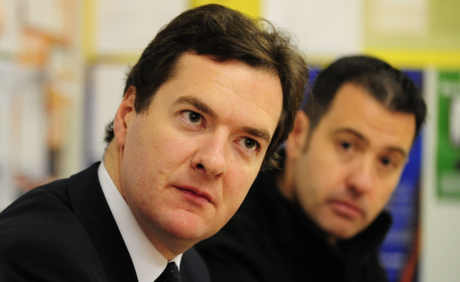As the discussion around the cost of living continues to circulate, chancellor George Osborne has proposed a sharp rise in the national minimum wage.
Increasing from its current level of £6.31 to a new one of £7, Osborne’s move would see the figure’s value boosted to a level not seen since before the economic crash.
The increase would be implemented through two phases, in October of 2014 and 2015, ahead of the next general election.
In a poll carried out by our sister website SmallBusiness, some 45 per cent of respondents said that the change would ‘significantly affect’ their business.
To find out how the proposed legislation change would impact on small and medium-sized business owners, GrowthBusiness quizzed five founders and entrepreneurs. The feedback we received was both mixed and revealing.
Chris Smith, CEO at Opinio Group, says:
‘George Osborne’s decision to raise the national minimum wage will be welcomed by those existing on it, which has been devalued by the financial crisis and inflation.
‘However, the figure is not as important as what your earnings will pay for. We’ve heard plenty of the ‘living wage’, which maintains purchasing power, but the mooted £7 per hour still falls short of this – so I’m dubious as to whether it will actually help.
‘I would like the chance to ask the chancellor whether this move is motivated by a will to improve peoples’ lives, or whether it is politically motivated, with the general election just around the corner. However, if someone cannot make an impact on your business that yields a return above what you are paying them you need to ask why you are bothering in the first place – or find a way in which technology can drive down or replace that cost.’
Darren Fell, managing director of Crunch Accounting, says:
‘The national minimum wage is a fantastic idea, however we are still seeing unscrupulous businesses utilise worthy mechanisms like the apprentice scheme to work around it. Let’s hope they consider closing off the other loopholes at the same time.’
Charlie Mullins, founder and CEO of Pimlico Plumbers, says:
‘What kind of idiot would put the national minimum wage up by 69p an hour? A very smart one I’d say, and one who has an eye on the future of the United Kingdom’s economy. In fact, maybe if we really grasped the nettle and put it up by even more the results might be truly spectacular.
‘If we made working for a living a more enticing prospect, people will have less reason to allow themselves to be reliant on benefits.
‘Some employers will be instinctively against this and scream to the heavens about how it will put up production costs. But the overall affect on costs as a result of putting up the money of just the very lowest paid workers would be more than balanced out by the benefits of incentivising people to get up in the morning and do a day’s work.’
‘I’m all for a carrot and stick approach, and if raising the minimum wage will get people out of welfare dependency and into jobs where they are paying tax in, rather than drawing out of the system, then that’s a good thing in my book.’

Will George Osborne’s plans incentivise more to join the workforce?
More on the national minimum wage:
Dino Forte, founder of Ventrica, says:
‘Although we pay considerably more than the minimum wage, any proposed increase will have a detrimental knock-on effect.
‘With a people-centric business such as ours which handles customer contact on behalf of blue chip companies, we would have to raise salaries across the board and this would significantly increase our overall costs.
‘In turn this would squeeze margins even further and make it even more difficult to compete with overseas rivals. The government should spend more time listening to small to medium sized businesses to assess if a) a change is really necessary and b) whether enterprises can really afford it.’
Saad Aslam, CEO of HC MedSpa, says:
‘At HC MedSpa we like to think that we are providing treatments of the highest calibre, and accordingly we only recruit exceptional cosmetic professionals.
‘Most of these will not be affected by any minimum wage changes. However, up to 25 per cent of our staff work on incentivised arrangements where basic salaries are at a lower level. The minimum wage change suggestions will only have a minor impact for higher payers like HC MedSpa, but I believe many of our competitors and other lower paid groups will be hit hardest if the current proposals become legislation.’
See also:






